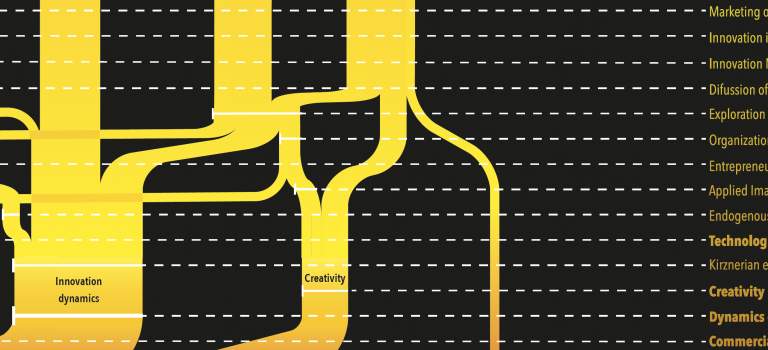The history of innovation theory is as rich as innovation itself. Greek philosophers like Plato and Aristotle already used the term καινοτομία coming from καινός (new) and τομ (radical craftsmanship): crafting in a radically new way. In modern theory, it was Schumpeter who popularized the term innovation in 1934 as part of his line of thinking about business cycles and creative destruction as the basis for (capitalistic) market economies. While he may have based his theory largely on 19th century and early 20th century economists, such as Tarde, Weber and Marx, his work was unique in the way that it combined all of these theories and that he described the important role of the ‘entrepreneur’ in innovation. Different scholars have later addressed the invention of the term ‘entrepreneur’ to Schumpeter.
Read more
